#but i love mahler so
Text
going to watch m*estro. pray for me
#honestly very turned off by the press tour for this movie#and i'm not a fan of bradley cooper in general#but i love mahler so#he (bradley) will never be tár#and she's not even real lmao#tár just had everything i wanted from a movie like that and maestro just looks like a jack off session for the oscars#hate that shit#he wants one soooooo bad and it is genuinely pathetic to watch idc if that makes me a hater#mahler deserves better tbh#but anyway here i go#my mind is open but my expectations are low
6 notes
·
View notes
Text
#HI! the bracket may have ended but what if we did extra random polls just for fun... <3#these poll answers are based on the responses to that post I made in the beginning of this blog!#and i filled in more answers w my own opinions and also some answers from classical music websites lol#for me the answer is very clear: BRUCKNER 4 BABY!!!#classical music#the poll i really wanted to make was which MAHLER symphony has the best opening but i think that's a little too niche lol#for me i think i like mahler 5 best but the opening to 7 is a close second. and i love 10 too.#controversial maybe but i don't love the opening to 2 bc it often sounds so sloppy
59 notes
·
View notes
Text
i think about this video all the time. dude tries to get his friend to guess a mahler symphony by playing ONE chord. and he does
youtube
#its so funny how poor quality the video is too#last time i watched this was like 5yrs ago and i didnt know any of them but actually i did get some this time#mostly just the ones from 4 bc i had Literally just listened before watching#but still#mahler#i love richard atkinsons music theory videos i wish he did more mahler analysis#Youtube
13 notes
·
View notes
Text
Tumblr's Guide to Shostakovich- Asides- Ivan Sollertinsky
So, in addition to my weekly posting for Tumblr's Guide to Shostakovich, I decided I want to do a series of related "asides" posts. These will be posted irregularly (as opposed to weekly) and cover aspects related to Shostakovich that don't fit neatly into one post focusing on one part of the chronological timeline. In this case, I want to talk about Ivan Ivanovich Sollertinsky, specifically his role in Shostakovich's life and music. Sources I'll be citing include Elizabeth Wilson's Shostakovich: A Life Remembered, Shostakovich's own letters to Sollertinsky and Isaak Glikman, Dmitri and Lyudmila Sollertinsky's Pages from the Life of Dmitri Shostakovich, Pamyati I.I. Sollertinskogo (Memories of I.I. Sollertinsky), and I.I. Sollertinsky: Zhizn' i naslediye (Life and Legacy), the latter two both by Lyudmila Mikheeva. Photo citations include the DSCH Publishers website and the DSCH Journal photo archive.

(Dmitri Shostakovich and Ivan Sollertinsky, Novosibirsk, 1942.)
Ivan Ivanovich Sollertinsky was born in Vitebsk, present-day Belarus, on December 3, 1902. He was a polymath, excelling in humanities fields, including linguistics, philosophy, musicology, history, and literature- particularly that of Cervantes. He specialized in Romano-Germanic philology, and spoke a wide range of languages; sources I've read vary from claiming he spoke anywhere from 25 to 30. (He specialized in Romance languages, but I can also confirm from sources that he studied Hungarian, Japanese, Greek, Sanskrit, and German. I've heard it said that he kept a diary in ancient Portuguese so nobody could read it, but I haven't seen this verified.) He had a ferocious wit, which he used to uplift friends and skewer enemies (there's a hilarious anecdote where he once saddled a critic opposed to Shostakovich with the nickname "Carbohydrates" for life), and worked as a professor, orator, and artistic director of the Leningrad Philharmonic. And yet, this impossibly bright star would burn out all too soon at the age of 41 due to a terminal heart condition, leaving his closest friend devastated- and inspired.
Dmitri Shostakovich first met Ivan Sollertinsky in 1921, when they were both students at the Petrograd Conservatory. While Shostakovich claimed he was at first too intimidated to talk to Sollertinsky the first time he saw him, when they met again in 1926, Shostakovich was waiting outside a classroom to take an exam on Marxism-Leninism. When Sollertinsky walked out of the classroom, Shostakovich "plucked up courage and asked him":
"Excuse me, was the exam very difficult?"
"No, not at all," [Sollertinsky] replied.
"What did they ask you?"
"Oh, the easiest things: the growth of materialism in Ancient
Greece; Sophocles' poetry as an expression of materialist tendencies; English seventeenth-century philosophers and something else besides!"
Shostakovich then goes on to state he was "filled with horror at his reply."
(...Yes, these are real people we are talking about. According to Shostakovich, this actually happened. And I love it.)
Later, in 1927, they met at a gathering hosted by the conductor Nikolai Malko, where they hit it off immediately. Malko recalls that they "became fast friends, and one could not seem to do without the other." He further characterizes their friendship:
When Shostakovich and Sollertinsky were together, they were always fooling. Jokes ran riot and each tried to outdo the other in making witty remarks. It was a veritable competition. Each had a sharply developed sense of humour; both were bright and observant; they knew a great deal; and their tongues were itching to say something funny or sarcastic, no matter whom it might concern. They were each quite indiscriminate when it came
to being humorous, and if they were too young to be bitter they could still come mercilessly close to being malicious.
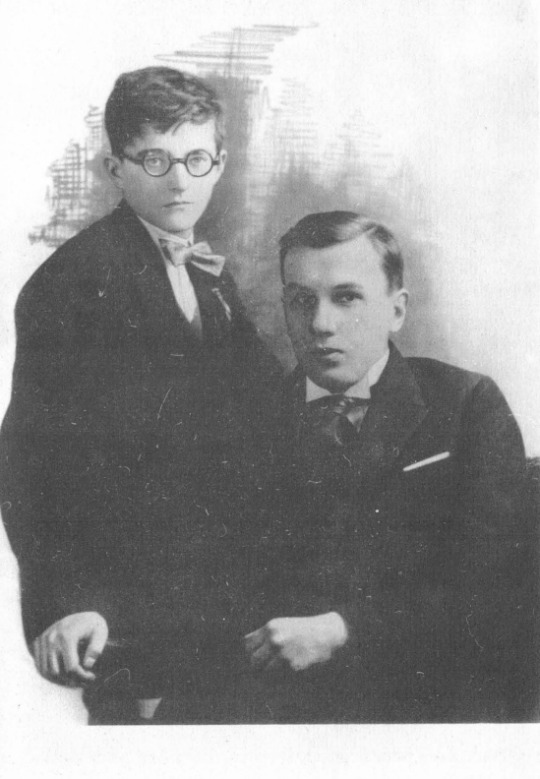
(Shostakovich and Sollertinsky, 1920s.)
Sollertinsky and Shostakovich appeared to be perfect complements of each other- one brash, extroverted, and confident, and the other shy, withdrawn, and insecure, but each sharing a sarcastic sense of humour and love for the arts that would carry throughout their friendship. In Shostakovich's letters to Sollertinsky, we see him confide in him time and again, in everything from drama with women to fears in the midst of the worsening political atmosphere. When worrying about the reception of his ballet "The Limpid Stream," Shostakovich writes in a letter from October 31, 1935:
I strongly believe that in this case, you won't leave me in an extremely difficult moment of my life, and that the only person whose friendship I cherish, the apple of my eye, is you.
So, write to me, for god's sake.
And, in a moment of frustration from August 2, 1930 Shostakovich writes:
"You have a rich personal life. And mine, generally, is shit."
(Famous composers, am I right? They're just like us.)
In addition to a friendship that would last until Sollertinsky's untimely death, he and Shostakovich would influence each other greatly in the artistic spheres as well. Sollertinsky dedicated himself primarily to musicology after meeting Shostakovich (his first review of an opera, Krenek's Johnny, appeared in 1928, after they had become friends), and in turn, Sollertinsky introduced Shostakovich to one of his greatest musical inspirations- the works of Gustav Mahler. Much is to be said about Mahler's influence on Shostakovich's music, to the point where it deserves its own post, but it goes without saying that without Sollertinsky, Shostakovich's entire body of work would have turned out much differently. Starting with the Fourth Symphony (1936), Shostakovich's symphonic works began to take on a heavily Mahlerian angle (in addition to many vocal works), becoming a permanent fixture in his distinct musical style.
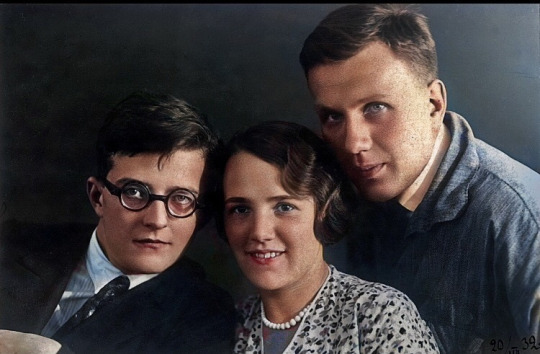
(Colorized image of Shostakovich, his wife Nina Vasiliyevna, and Sollertinsky, 1932. One of my absolute favourite photographs.)
Shostakovich's letters to Sollertinsky, from the 20s to early 30s, are characterized by puns and literary references, snide remarks, nervous confessions, and vivid descriptions of the locations he traveled to during his early career. However, as the 1930s progressed and censorship in the arts became more restrictive, signs of worry begin to take shape in the letters. This would all culminate in January 1936, with the denunciation of Shostakovich's opera Lady Macbeth of the Mtsensk District in Pravda. I'll go further into detail about the opera and its denunciation in a later post, but for now, I want to focus on its impact on Shostakovich and Sollertinsky's friendship.
As one of the first world-famous composers whose career began in the then-relatively young Soviet Union, targeting Shostakovich proved to be a calculated move. Due to his prominence and the acclaim he had previously received, both in the USSR and abroad, the portrayal of Shostakovich as a "formalist" meant someone had to take the blame for his supposed "corruption" towards western-inspired music and the avant-garde. The blame fell upon Sollertinsky, who was lambasted in the papers as the "troubadour of formalism." To make matters worse, Sollertinsky had long showed a fascination with western European composers, such as the Second Viennese School, and had previously praised Lady Macbeth in a review as the "future of Soviet art." An article in Pravda from February 14, 1936, about less than a month after the denunciation, stated:
“Shostakovich should in his creation entirely free himself from the disastrous influence of the ideologists of the ‘Leftist Ugliness’ type of Sollertinsky and take the road of truthful Soviet art, to advance in a new direction, leading to the sunny kingdom of Soviet art.”
Critics who had initially praised Lady Macbeth had begun to retract their positive reviews in favour of negative ones, and a vote was cast on a resolution on whether or not to condemn the opera. According to Isaak Glikman, their mutual friend, Shostakovich spoke with Sollertinsky, who was conflicted on what to do, beforehand. Although Sollertinsky didn’t want to condemn his friend, he supposedly told Glikman that Shostakovich had given him permission to “vote for any resolution whatsoever, in case of dire necessity.” When denouncing the opera (supposedly with Shostakovich's permission), Sollertinsky had commented that in order to develop a “true connection” to the Soviet public, Shostakovich would have to develop a “true heroic pathos, and that Shostakovich would ultimately succeed “in the genre of Soviet musical tragedy and the Soviet heroic symphony.” After Shostakovich’s second denunciation in Pravda of his ballet, “The Limpid Stream,” and the withdrawal of his Fourth Symphony- arguably the most Mahlerian of his middle period works- the Fifth Symphony, easily interpreted to follow these criteria, had indeed restored him to favour. Sollertinsky’s reputation, too, was saved.

(Aleksandr Gauk, Shostakovich, Sollertinsky, Nina Vasiliyevna, and an unidentified person, 1930s.)
In 1938, Sollertinsky contracted diphtheria. Ever tireless, he continued to dictate opera reviews and even learned Hungarian while hospitalized, although he became paralyzed in the limbs and jaw. Shostakovich wrote to him often with touching concern:
Dear friend,
It's terribly sad that you are spending your much needed and precious vacation still sick. In any case, when you get better, you need to get plenty of rest.
By the time the letters from this period break off, it's because Shostakovich was able to visit Sollertinsky in the hospital, which he did whenever he was able.
While Sollertinsky was able to recover, their friendship would face yet another test in 1941, due to the German invasion of the Soviet Union during WWII. Sollertinsky evacuated with the Leningrad Philharmonic to Novosibirsk, while Shostakovich chose to stay in Leningrad. However, as the city fell under siege, due to the safety of his family, Shostakovich fled with Nina Vasiliyevna and their two children to Kubiyshev (now Samara) that October, having spent about a month in Leningrad during what would be one of the deadliest sieges of the 20th century. It was in Kubiyshev that Shostakovich would finish his famous Seventh Symphony (which, again, will receive its own post), before eventually moving permanently to Moscow (although he still taught for a time at the Leningrad Conservatory).
During this period of evacuation, Shostakovich's letters to Sollertinsky are heartbreaking. We not only see him pining for his friend, but worrying for his safety and that of his family, including his mother and sister, who were still in Leningrad at the time. Still, he reminisces of their time together before the war, with the hope that he and Sollertinsky would be back home soon. In a letter from 12th February, 1942:
Dear friend, I painfully miss you, and believe that soon, we will be home, and will visit each other and chat about this and that over a bottle of good Kakhetian no. 8 [a Georgian wine]. Take care of yourself and your health. Remember: You have children for which you are responsible, and friends, and among them is D. Shostakovich.
In 1943, Sollertinsky arrived in Moscow, where Shostakovich was living at the time, to give a speech on the anniversary of Tchaikovsky’s death. At long last, they finally were able to see each other, and anticipated that soon enough, their long period of separation, made bearable only by letters and phone calls, would come to an end: Sollertinsky, living in Novosibirsk, was planning to return to Moscow in February of 1944 to teach a course on music history at the conservatory. When he and Shostakovich said their goodbyes at the train station, neither of them knew it would be the last time they saw one another.
Sollertinsky's heart condition, coupled with his tendency to overwork, poor living conditions, heavy drinking, and added stress, often left him fatigued. On the night of February 10th, 1944, due to a sudden bout of exhaustion, he stayed the night with conductor Andrei Porfiriyevich Novikov, where he died unexpectedly in his sleep. His last public appearance had been the speeches he gave on February 5th and 6th of that year- the opening comments for the Novosibirsk premiere of Shostakovich’s 8th Symphony. A remarkable amount of telegrams and letters from Shostakovich to Sollertinsky survive and have been published in Russian. Some seem hardly significant; others carry great historical importance. Sollertinsky took many of them with him from Leningrad during evacuation; those letters were considered among his most prized possession. His son, Dmitri Ivanovich Sollertinsky, was named after Shostakovich- breaking a long tradition in his family in which the first son was always named "Ivan."
As for Shostakovich, we have letters to multiple correspondents detailing just how distraught he was for months after receiving news via telegram of Sollertinsky’s death. To Sollertinsky’s widow, Olga Pantaleimonovna Sollertinskaya, he wrote:
“It will be unbelievably hard for me to live without him. [...] In the last few years I rarely saw him or spoke with him. But I was always cheered by the knowledge that Ivan Ivanovich, with his remarkable mind, clear vision, and inexhaustible energy, was alive somewhere. [...] Ivan lvanovich and I talked a great deal about everything. We talked about that inevitable thing waiting for us at the end of our lives- about death. Both of us feared and dreaded it. We loved life, but knew that sooner or later we would have to leave it. Ivan lvanovich has gone from us terribly young. Death has wrenched him from life. He is dead, I am still here. When we spoke of death we always remembered the people near and dear to us. We thought anxiously about our children, wives, and parents, and always solemnly promised each other that in the event of one of us dying, the other would use every possible means to help the bereaved family. ”
Shostakovich stuck to his word, making arrangements for Sollertinsky's surviving family to return to Leningrad after it had been liberated, going through the painstaking process of acquiring the necessary documentation and allowing them to stay at his home in Moscow in the meantime.
In 1969, he would write to Glikman:
“On 10 February, I remembered Ivan Ivanovich. It is incredible to think that twenty-five years have passed since he died.”
Furthermore, Shostakovich recalled:
Ivan Ivanovich loved different dates. So he planned to celebrate the twentieth anniversary of our acquaintance in the winter of 1941. This celebration did not take place, since the war had ruined us. When in our last meetings, we planned the 25th anniversary of our friendship for 1947. But in 1947, I will only remember that twenty-five years ago life sent me a wonderful friend, and that in 1944 death took him away from me.
And yet, there was still one more tribute left to make. Shostakovich had already dedicated a movement of a work to Sollertinsky- a setting of Pasternak's translation of Shakespeare Sonnet no. 66 in Six Romances on Verses by English Poets- but after Sollertinsky's death, he completed his Piano Trio no. 2 in August of 1944, a work that had taken months to finish. While he had started the work before Sollertinsky's death and mentions it in a letter to Glikman as early as December 1943, it would since bear a dedication to Sollertinsky's memory.
The second movement of the Trio is a dizzying, electrifying Allegro con Brio- and probably my favourite work of classical music, ever. Sollertinsky's sister, Ekaterina Ivanovna, was said to have considered it a "musical portrait" of her illustrious brother in life, with its fast-paced, jubilant air. The call-and-response between the strings and piano seem, to me, to reflect one of Shostakovich and Sollertinsky's early Leningrad dialogues- the image of two friends out of breath with laughter, each talking over each other as they deliver witty comebacks and jokes that only they understand. For the few minutes that this movement lasts, it is as if Shostakovich and Sollertinsky are revived, if not for just a moment, the unbreakable bond that defied decades of hardship now immortalized in the classical canon, forever carefree and happy in each other's company.
And then comes the pause.
It is this silence between the Allegro con Brio and Adagio that is the loudest, most powerful moment of this piece as eight solemn chords snap us into reality, like the sudden revelation of Sollertinsky's death- as Shostakovich said, "he is dead; I am still here." These eight chords form the base of a passacaglia, the piano cycling through them and nearly devoid of dynamics as the cello and violin sing a lugubrious dirge. The piano- Shostakovich's instrument- seems to mirror the stasis of grief, the inability to move on when paralyzed by loss.
The final movement of the Trio, the Allegretto, seems to speak to a wider form of grief. By 1943, the Soviet Union was receiving news of the Holocaust, and the Allegretto of Shostakovich's Trio no. 2 is among the first instances of Klezmer-inspired themes in Shostakovich's work (not counting the opera Rothschild's Violin, a work by his student Veniamin Fleischman that he finished after Fleischman's death in the war). The idea that the fourth movement is a commentary on the Holocaust is the most popular interpretation for Shostakovich's use of themes inspired by Jewish folk music, but other interpretations include a tribute to Fleischman (who was Jewish), or a nod to Sollertinsky's birthplace of Vitebsk, which had a substantial Jewish population until the Vitebsk Ghetto Massacre in 1941 by the Nazis. (While I haven't read anything confirming that Sollertinsky was ethnically Jewish, the painter Marc Chagall and pianist Maria Yudina, both carrying associations with Vitebsk, were.) Whether the grief expressed here was personal or referencing the larger global situation, the quotation of the fourth movement's ostinato followed by the final E major chords suggest a peaceful resolution after a long movement of aggressive tumult and grotesque rage.
Shostakovich would continue to grieve and remember Sollertinsky, but the ending of this piece- composed over the course of about nine months- perhaps implied closure and healing. In the following years, the war would end, Shostakovich would form new connections (such as a lasting friendship with the composer Mieczyslaw Weinberg), and, as he had done through tragedy before, would continue to write music. Sollertinsky was gone, but left a mark on Shostakovich's life and work, his memory carried in every musical joke and Mahlerian quotation that found its way onto the page.

(Shostakovich at Sollertinsky's grave, 1961, Novosibirsk.)
(By the way, check the tags. ;) )
#shostakovich#dmitri shostakovich#tumblr's guide to shostakovich#classical music#music history#soviet history#ivan sollertinsky#russian history#classical music history#composer#music#history#also fun fact sollertinsky and shostakovich almost wrote a don quixote ballet together but that didn't work out bc shost got denounced#they had an inside joke about a fake composer named persianinov. they invented goncharov you guys#there's one letter from shost to sollertinsky about the time a ballet worker tricked another worker into eating goat shit#sollertinsky would apparently come over to shost's house and sing mahler symphonies in a 'high squeaky voice'#like from memory#they'd write riddles to each other in letters#i love them so much#they are everything to me#apparently they'd also run over to each others' houses to deliver letters if they couldn't see each other#in leningrad ofc#sollertinsky got REALLY PISSED once bc someone suggested changing a bit of shost's music in lady macbeth it was really funny#shost once said sollertinsky had a 'magical influence on the female sex' and like . look at him#he's not wrong#oh btw it's 3 am and I have work tomorrow#oh one last fact they loved to go on roller coasters together (in russia they call them 'american mountains') but#the one they liked burned down lol
46 notes
·
View notes
Text
youtube
Before I moved out of Michigan and started singing with a Major Metropolitan Symphony I was in a university choir that sang with a less major regional symphony and my first concert with them was Mahler 2. The following spring, covid shut everything down and the symphony put some of its concert recordings on youtube, including that one, and it's still there today. So if you have ever found yourself saying "why yes, I do love the Resurrection Symphony, but there's something missing in my musical life and that's a recording of it that has @shredsandpatches in it," then this is for you.
(Nobody has ever said that, I know I know)
Also it made the reviewer from the local alt weekly go pretty feral.
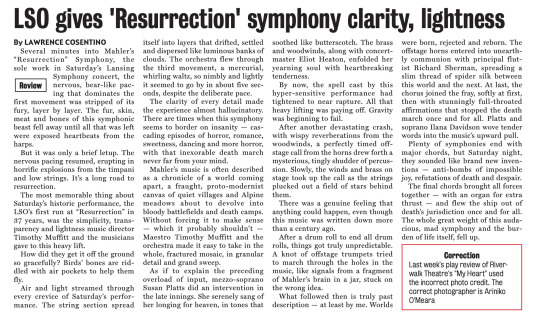
#mahler time#mahler 2#choir stuff#i loved singing this so much#i should rip it from youtube and make MP3s of it#Youtube#bereite dich zu leben!
13 notes
·
View notes
Text


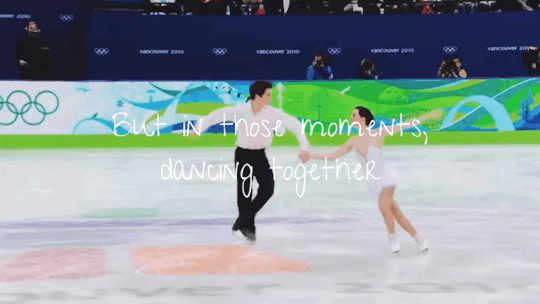
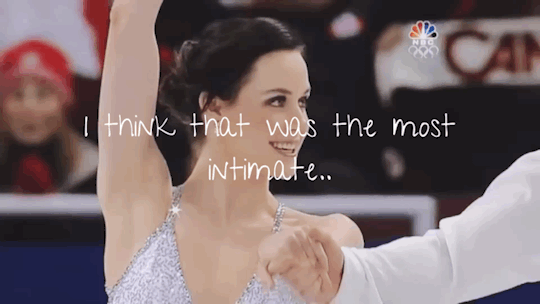

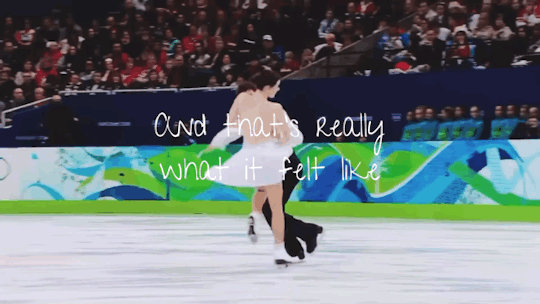



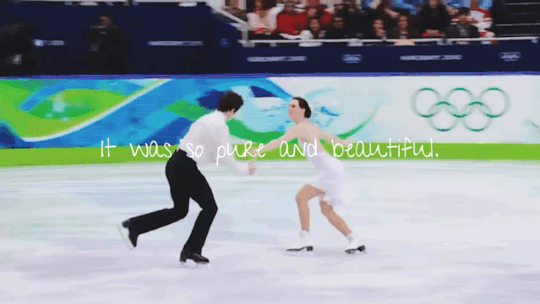
-Scott Moir on their gold medal winning free dance at the Vancouver, 2010 Olympics x
Also on IG in video form x
#it’s the “DANCING together’ that gets me#❤️🩹#Rod black interview gifs#Scott is a poet#I know it’s stereotypical it say.. but that coming from a guy..#that he felt so beautiful and free#dancing with his best friend#the purity of that#what a special soul he is#and after all they had been through#in that year leading up especially.. nearly torn apart#then to get to share this experience#it’s just the most beautiful story of love and friendship#vancouver 2010#fd: mahler#shit Scott Moir says#scooter#scootie patootie#my dancing bbys
43 notes
·
View notes
Note
when u get this u have to put 5 songs 🎵 u actually listen to, publicly. then, send this ask to 10 of your favorite followers ✨💟 :D
Katharina this is such a perfect ask for me lol you all know how passionately I love music 🎶
1. brothers - recorded for triple j by Gang of Youths
2. Symphony No 9 in D Major: IV. Adagio by Gustav Mahler, conducted by Bruno Walter
3. Hounds of Love by Kate Bush
4. Rose Tattoo by Dropkick Murphys
5. blessing me (feat. Kali Uchis) (remix) by Mura Masa, Pa Salieu, Skillibeng, Kali Uchis
#ask and you shall receive#catholicnicky#music#i love music so much. applyin for the community orchestra soon!!!!#these are songs i know by heart and also love to bits still#and yes. that’s Mahler. Mahler is actually quite good dkdjxnxnc#last song is stuck in my head and tbh i feel like you could choreograph something super cute to it
5 notes
·
View notes
Text
is it too much to ask for the part roughly 6 minutes into the wiener philharmoniker’s recording of gustav mahler’s symphony no. 5 in c sharp minor: iv. adagietto (sehr langsam) to play in our flag means death season 2 as a sad love theme for ed and stede?
#i think it might actually be#but yeah if i’m not mistaken#this movement was mahler going ‘wow i’m in love with this woman but i don’t know if she loves me’#‘or if she’ll EVER love me’#so mark mothersbaugh#please#PLEASE#im begging you to add this to the soundtrack for s2#ofmd#our flag means death#edward teach#stede bonnet#gentlebeard#blackbonnet#gustav mahler#film music#ofmd season 2
12 notes
·
View notes
Text
Mahler….. so…. 💖💖❣️💖💖💖💖💖💖❣️❣️❣️❣️
#I’m listening to Mahler 5 and genuinely like just. jaw dropping. i love his symphonies so much#all so good#personal
1 note
·
View note
Text
yesterday while feverish i wrote about how boats can moor next to each other like pigeons, cooing with the gentle rap of water against their hull. you once said that that the way i see things - birds in the water, feathers in marina paint - was "childish and naive." you said i'd been misdiagnosed - "it can't all be adhd. you might be just kind of stupid and lazy."
i still do certain things like how you taught me - turn the pillow case inside out before putting it on. drive defensively. hate myself entirely.
the prompt for this poem is "mahler's fifth." i wish it wasn't, but mahler's fifth was our song. it ended up in my book. every person that knows your name has promised me they'll give you one swift rabbit punch, right to the face. dean read the book and showed up on my front porch, drenched in sweat from running the 8 miles at 4 in the morning. he was shaking. pacifist and gentle - he works with children - i'd never seen him furious. a punch isn't going to do it, he said, and then said i'm sorry. i had to come to see if you were okay.
mahler's fifth was mine first, like my girlhood. i like the way each movement piles onto the next movement, each instrument bleeding into the next. i like the horn version the best. before i met you, i danced to it on grass still-wet from sprinklers.
later you would tell me that the way you heard it was somehow better. you understood something in it that i couldn't quite wrap my fingers into. once, on our anniversary, you asked the classical music radio station to play it for us. we missed hearing it because we were fighting. one of the things people get wrong about abuse is that sometimes victims are, like, brutally aware of the stupidity of our situation. what do you mean that you thought i wasn't good enough for you? you? you're just... nothing.
sometimes people can pull the poetry out of your life. i watched my words become clothesline, and then thin out into kite twine. i watched you chew through every good syllable of me. so many good songs and places and moments were ruined. i am glad you didn't like most of my music - less to tie back to you.
but still mahler's fifth. the music swells, and i am 21 and throwing up in a bathroom on my birthday. a woman i will later refer to as lesbian jesus runs a cool hand down my back, her perfect pantsuit starch-pressed. she told me to leave you. she said - and this is true, and not an invention of rhyme or fantasy - i'm you from the future.
i am 22, and i got home from an award ceremony, and i remember you telling me - you act so proud of yourself when you're actually so fucking embarrassing. i took you to disney world. you took my virginity. i gave up visiting spain for a week with my family - i instead choose you, to spend the time just-cuddling. you called it "our fuck week." the music swells. it probably should have been a red flag that for about 3 years - i just gave up on crying. my grandfather died and you said nothing. my uncle died and you ghosted me for 3 weeks. you said i need to protect myself from your ongoing tragedy.
every so often i come back to the memory of one of our last afternoons in person. i had just told you that i wasn't going to law school, despite the free ride - i was going to join a creative writing program. master's in fine arts. i was going to finally do it - i was going to follow my dreams. this blog was already internet-famous. however reluctantly, i would occasionally refer to myself as a poet. i got into umass amherst's writing program for fiction authors. it is one of the the top 5 programs in the country.
wait are you seriously considering actually attending that? dumbfounded, you turned completely towards me in your seat. for the 3rd time in our relationship, you almost crashed the car. you actually want to be a writer?
the first time i went viral, it was for a poem i wrote about you:
he wants to say i love you
but keeps it to goodnight
because love will take some falling
and she's afraid of heights.
every time i see that, i want to throw up. you weren't in love with me, you were in love with the control you had over me. a little truth though: i am afraid of heights. you caught a rabbitgirl and skinned her alive.
mahler's fifth still makes me sick.
give me that back. give me back music. give me back everything i had before you. give me back fearlessness. give me back bravery. give me back a scarless body.
give me back what you took from me.
#nosebleed club#sorry stephen not ur fault#just like. thinking#writeblr#spilled ink#warm up#every time nat is like - oh let me get that for u#im like .... this is a trick right like ur gonna be mean now bc u did something nice rn#so obviously if ur being nice now either u did something mean and im about to learn about it#or you're going to BE mean#or ur gonna hold this over my head forever and i'll never get a nice thing ever again?#and every time nat is like .... babe i just actually like u#lesbian jesus story is 100% real btw. she also told me not to be an event planner#literally changed the shape of my life
2K notes
·
View notes
Text
Nina and Maggie interview with Matt Mahler for Movieweb :), 10.7.2023
Question: What was it like playing new characters in Season Two?
Maggie: I immediately cried and then said, yes, please, that, please, I'll do that.
Nina: I didn't think it was particularly real. Why would that be real? I got an email at 02:00 in the morning, but it turns out it was. I think, I think it's lovely that you think it was beautiful because I think it is much more personal and it's much more about people or entities learning to trust each other and realising that they might need each other in order to live well. So I think that's rather lovely.
Question: How did you prepare your on-screen relationship?
Maggie: Well, yeah, the characters are written so beautifully that the dynamic is a lovely thing to play.
Nina: Well, the characters are really very well drawn and you sort of instantly know who they are, from the first few times you meet them in that first episode. And I guess we had conversations about the tone and about how big to play some things. And I guess the conclusion was not big .It was to be just as natural, as sincere and true to the real situation as possible. Even when something miraculous might be happening in front of you as humans, you interpret it in away that makes sense of your world.
Maggie: Yeah. And there's always room for sort of quiet, unspoken connections...
Nina: Yeah, between the lines.
Maggie: Yeah, those were a good few days, working out the looks and the unsaid words, what we were actually saying.
Question: How does this season question good and evil?
Maggie: Yeah, I think it does endlessly in both the seasons, actually. And I don't think that we ever come to an answer. I think the point is that we have to keep asking the question and possibly not judging things and looking within ourselves .And if everybody did that, maybe the world would be in a slightly more nice place.
Nina: Maybe a little more stable position. Who knows? Yeah. It seems to be about the whole of Good Omens, as Maggie was saying, is about asking that question and about realising that you need both sides. And it's about context as well, that good and evil only exist in whatever situations they exist in. And what might be good in one situation to be bad in another.
#good omens#gos2#season 2#interview#nina sosanya#maggie service#nina interview#maggie interview#maggie and nina interview#maggie and nina#nm#movieweb#videos#video interview#s2 interview#transcripts
163 notes
·
View notes
Text


messy floorwork setup / messy deskwork setup
05 FEBRUARY 2024 | 44 DAYS OF PRODUCTIVITY
monday being my busiest day of the week ... i have a lot of feelings about that, and all of them are bad
despite that, a pretty good day! it's just the work from 9-12 and then lab from 12-3 has me feeling like i've run a marathon by the time the end of lab rolls around, and then i still have so many hours in the day filled with stuff after that
my lab instructor said i'm great with a microscope and was complimenting me all of lab, even when i kept asking him questions. there's no feeling in the world better than academic validation.
also got a late lunch/early dinner with friends after my lab! that was a lot of fun, and i got to hard launch my thesis at them, which was so validating
had another lecture, then finished the assignment for my lab, then ran to rehearsal/planning for the dance i'm working on with a friend for our cultural show
home, showered, duolingo-ed, snacking, and ready to crank out my philosophy readings for tomorrow and hopefully get a head start on the readings for my seminar on wednesday
friendly reminder that wearing a mask in public is an act of love!!
🎧: mahler's symphony no. 5
📚: confederates in the attic - tony horwitz (28%); the body in pain - elaine scarry (11%)
#studyblr#100 days of productivity#100 dop#study aesthetic#studyspo#uniblr#uni#college#study motivation#productivity#galestudies
94 notes
·
View notes
Text
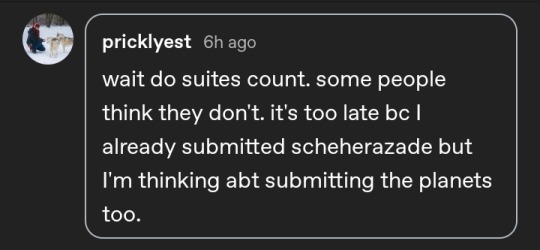
[ID: reply by @pricklyest "wait do suites count. some people think they don't. it's too late bc I already submitted scheherazade but I'm thinking abt submitting the planets too." /end ID]
I'd like to compare apples to apples as much as possible, so when I made this I was thinking of including only straight symphonies ("symphony number x") and no suites or symphonic poems etc. Comparing the planets to Mahler 5 feels a lot different than comparing Bruckner 4 to Mahler 5.
But since this is a silly tumblr bracket after all... let's put it to a poll! Maybe more variety = more fun?
#go ahead and sumbit whatever you'd like but if 'no' wins I will not include suites etc in the bracket#this is so fun I love taking tumblr polls extremely seriously#classical music#scheherazade#rimsky korsakov#mahler#bruckner
14 notes
·
View notes
Text
FINALLY got out my record player that my sister gave me forever ago and and figured out how to use it 💌 it wasn't even hard but for some reason my brain had filed it under Impossible Tasks and then I entered tummy hurty crisis mode for like 6 months . anyway its so cool even though I literally only have 4 records right now. mahler 1 & 7, scheherazade, and death and the maiden :)
#whatever i can find at the secondhand shop for literally 99 cents#i want an antique mahler 2 record so bad#or like any mahler 2 record#listening to 7 now though :) i love 7 esp mvmt 2. and it reminds me of my horn prof thats his fav mahler symphony
20 notes
·
View notes
Text
everyone shut up this is ACTUALLY what fans of different composers are like
Mahlerians are PROUD TO BE ABSOLUTELY INSUFFERABLE DRAMA QUEENS, THE LIKES OF WHICH EVEN THE WAGNER CULT COULD NEVER SO MUCH AS ASPIRE TO BE. WE ARE ONE WITH THE UNYIELDING EBB AND FLOW OF THE BOUNDLESS UNIVERSE, DAMN IT ALL!
Shostakovich fans are like Mahler fans except they actually understand what sarcasm is. We also all really like the Muppets for some reason. Most of us own cats and likely have at least one mental illness.
Liszt fans are either tweenagers who love anime or salty old pianists who know a disturbing amount about music theory. These two factions are constantly at war.
Copland fans are either very, very far right or very, very far left. Either way, neither side actually listens to all of Copland's repertoire.
Tchaikovsky fans are either Russian grandmas or LGBT orchestra kids on Tiktok. Either those or the one noob who heard there were cannons once.
Wagner fans. Yes, there are the cringey neo-Nazi Wagnerians, but anti-Nazi Wagnerians are a whole new level of chaotic good. They spend their time dreaming up the most disastrous, chaotic Ring productions possible, with the sole purpose of making Richard Wagner's entire family simultaneously spin in their graves. They take "death of the author" to a whole new level and constantly run on nothing but 100% pure spite. You want a Wagnerian who would beat up Wagner in a Denny's parking lot on your side.
Prokofiev fans will unironically say "ackshually...". That's it.
Dvorak fans are homeschool kids. They're either soul-crushingly innocent or devastatingly horny.
Sousa fans are just high school band directors who try to convince themselves they like Sousa to get through the semester.
Joplin fans constantly argue over whether Joplin's music should be played twice as quickly or twice as slowly than it's actually written. Also sick of hearing about Janis.
Chopin fans are exactly like Liszt fans, except there are 20% more "uwu softboi flowercrown" edits of Chopin than Liszt floating around on Instagram and Tumblr.
Holst fans will drag you into an alleyway and beat you up with their bare hands if you so much as mention The Planets.
Bernstein fans are either horny theatre kids or communists, but it's more likely they're both at once. They are very opinionated about recordings, and express their approval of the ones they like by gyrating excessively to them. If you put a Bernstein fan, a Mahler fan, and a Shostakovich fan in one room, they will either topple a national government or have a threesome.
Ravel fans are inherently Wes Anderson fans. You can be friends with one for years without knowing a single thing about their personality.
Schoenberg fans are like Mahlerians but with worse memes.
Brahms fans are... I have never met a Brahms fan. I'm sure they exist, but I'm pretty sure my own taste in music scares them off.
Paganini fans are almost always TwoSet kids, particularly the ones who try to convince people that "classical music isn't boring because it's basically metal." If you tell them Paganini played viola, they will spontaneously combust.
Rachmaninov fans are ultimately really chill, but are often socially awkward. If you ask a Rachmaninov fan "how are you?", they will most likely respond with "you too."
Schumann fans are Mahlerians on medication.
Stravinsky fans think they're chaotic and unhinged and listen to the most obscure underground shit, but in all actuality they just decided to enter their edgy phase after a lifetime of being sheltered and forced to listen to nothing but Handel by their parents. Possibly homeschooled.
Ysaye fans are like Paganini fans, except they're depressed graduate music students with permanent calluses on their fingers.
Debussy fans go to art school, decide they don't like art school, but have been doing art school too long to turn back, so they can't get out of art school. They may be high on weed at any given moment.
Satie fans are just possessed vessels of Erik Satie. Death cannot hinder Erik Satie. Erik Satie will return to this mortal plane. Search your feelings. You are already Erik Satie.
#classical music#music#composer#composers#mahler#shostakovich#iszt#copland#tchaikovsky#richard wagner#prokofiev#dvorak#sousa#scott joplin#chopin#ysaye#schumann#stravinsky#debussy#satie
627 notes
·
View notes
Note
So true about Kaiba being a moody dramatic Rachmaninoff piano concerto hoe lmao. Would he give Chopin a pass for ballade in g/winter winds you think, or is anyone who writes frilly little etudes automatically disqualified from the playlists on principle?
Oh god so here's my opinion as someone who played classical piano for eight years and interned at a classical music organization for a while: as the adopted son of a rich man who was (according to DM) invested in cultivating some kind of philanthropic/cultured image, Kaiba was probably dragged along to many, many classical music events as a young lad, and sat there in his penguin suit under strict orders not to fall asleep, fold the program into paper airplanes, fidget too much, or let Mokuba fidget too much. What he truly knows about classical music might fill a bucket (the four major eras, the big name composers, some basic music theory) but not a swimming pool.
Like I don't love seeing "rich people" cliches stuck on Kaiba, because his life story is far more complex than that, but I do think this one--"ultrawealthy donor attends a night at the symphony because it's a good look for them, not because they understand the intricacies of Mahler"--might apply here. He IS going to see Yuja Wang play Prokofiev, but he does not know why/how Prokofiev is important, and unless he took a dedicated interest in music (leading to your exquisite insights) he might just slap KAIBA SYMPHONIC HALL atop the arts center, mail over a check for $20mil, and be done with it Gozaburo style.
That being said, this is my answer to your question: I think he pays attention during a performance of Chopin's Tristesse (or, Ravel's Pavane por une infante défunte?) feels one too many feelings, and wants to go crawl into a dirt hole about them afterwards, like a dying animal. But he has to schmooze at the donor's club, so he can't. He is wearing a cummerbund and a bowtie, and now he is twice as miserable.
When he locks himself in his lab later, to burn the midnight oil, he listens to the Chopin again, in private, and discovers new feelings--which are actually just the old feelings, newly remembered.
Also his favorite symphony is Mahler 5. Look me in the eyes and tell me he wouldn't go ballistic for the trumpet solo.
21 notes
·
View notes